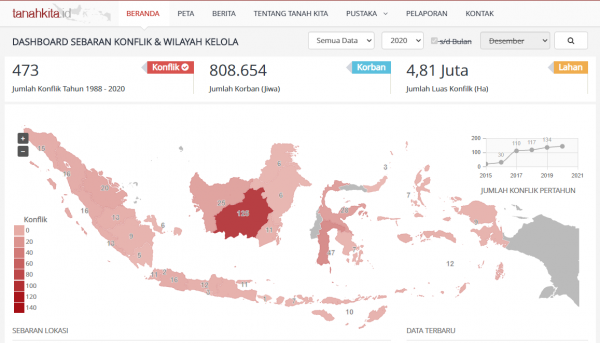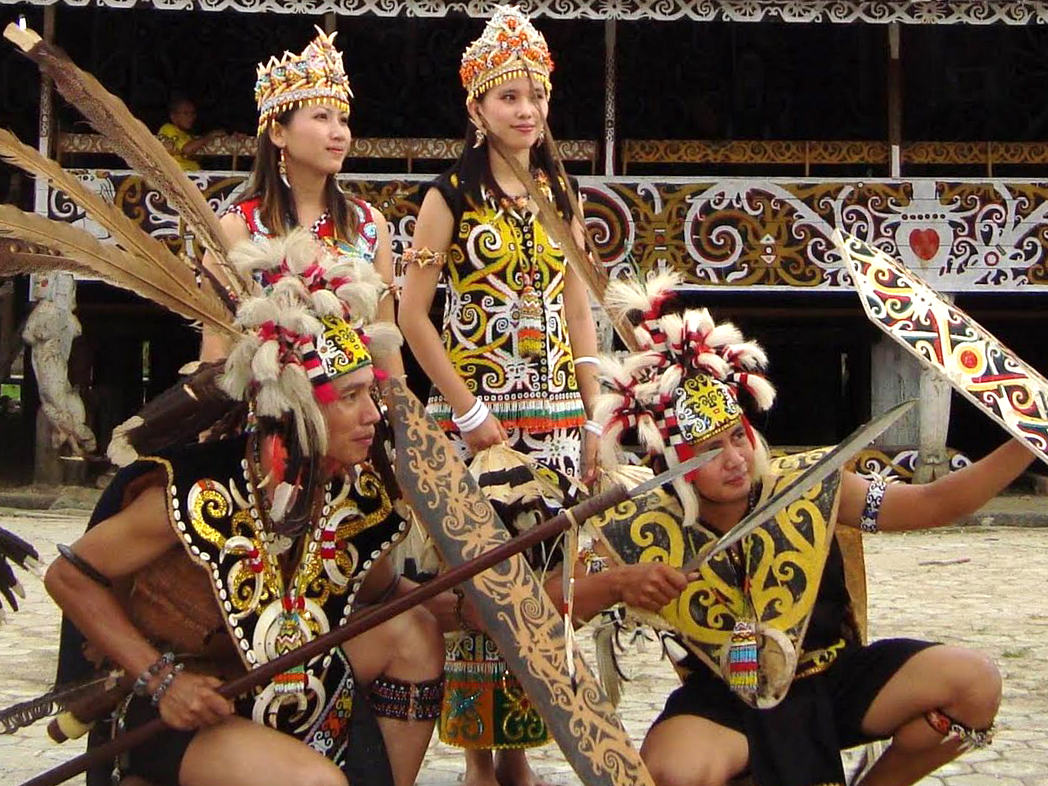First published on 12/05/2020, and last updated on 02/11/2025
A snapshot of our Members’ recent activities in Southeast Asia to document, sustain, and defend Indigenous peoples’ and local communities’ territories of life.
By NTFP-EP Asia, Southeast Asia Regional Coordination Team
Special thanks to our members in Indonesia, Malaysia, Myanmar, Vietnam, and the Philippines for providing the information and photos. Download the PDF version of this publication from here.
Documenting territories of life
WGII completed the registration of eighty-six ICCAs covering 416.162,64 hectares. Information of seventy-two ICCAs has been uploaded to the tanahkita.id Geo Portal; a national level registration platform of ICCAs developed for Indonesia. The portal aims to provide a database that can be used by Civil Society Organizations and Indigenous peoples and local communities (IPLCs) in their advocacy for tenure recognition, protection, and conservation of traditional territories, as well as in resolving agrarian land conflicts. For more information about the portal visit the website.
A policy brief on challenges and opportunities on the recognition of customary lands in Indonesia is being drafted by WGII with the government and public as the target audience.
WGII is in the process of developing a peer review mechanism for registering ICCAs to the Indonesia National ICCA Registry. The guideline will be shared publicly on the WGII website.
PanNature, in collaboration with GIZ, recently completed a survey and consultations to assess the management mechanism in sacred forests in Vietnam. The result of this study will be a Policy Brief on Management of Sacred Forests to the ongoing development of new Forestry Law in Vietnam.

Download the PDF version of this publication from this link.
Myanmar ICCA Working Group successfully launched a publication on documenting six ICCAs in Myanmar. See the publication here.
Bukluran received funding from WWF to publish a case study on ten selected ICCA sites in the Philippines. Case studies will particularly focus on ICCAs’ contribution to carbon sequestration. The publication aims to popularize ICCAs and planned to be launched in the upcoming 2021 COP for CBD and UNFCCC.
PACOS and ICCA partners in Malaysia are now in the process of developing strategies for registering ICCAs into the ICCA Registry. To date, PACOS and SGP have supported ten communities in finalizing documentation of their ICCAs.
WGII organized a joint workshop with the Directorate General for Conservation of Natural Resources and Ecosystem and the Ministry of Environment and Forestry to discussing the post-2020 Global Biodiversity Framework where the later expressed their commitment to support the documentation and registration of ICCAs in Indonesia, including preparing a policy to recognize ICCAs in future policies and laws in the country.
SAVE Rivers is also conducting a baseline study on flora and fauna and IPs’ relationship to nature in the Baram Peace Park, Malaysia.
The ASEAN Center for Biodiversity organized a dialogue among ASEAN Member States, IPLCs, and CSO support groups to identify potential areas that may be considered as possible ICCAs or OECMs which may be included in the final reporting of AMS accomplishments to the Aichi Target 11. Representatives from ICCA Consortium members in Southeast Asia joined the dialogue, namely from the WGII, SAVE Rivers, and Bukluran, together with the ICCA Regional Coordinator for Southeast Asia. Dr. Sarat Babu Gidda, CBD Secretariat, highlighted in his presentation that OECMs have a huge contribution to the achievement of Aichi Target 11. This contribution is related to quantitative and qualitative elements, socio-economic and environmental benefits, and the overall well-being of society. Dr. Gidda said, OECMs also contribute to Target 2 of the post-2020 Global Biodiversity Framework– that is ‘by 2030, protect and conserve through a well connected and effective system of protected areas and OECMs measures at least 30% of the planet (interim target). He encouraged the cooperation between the government, IPLCs, and CSOs to conduct a systematic assessment of OECMs and ICCAs to be included in reporting on Aichi Target 11.
Defending territories of life
WGII will have met with the Ministry of Forestry to discuss the resolution of land conflicts in IPLC areas, especially in conservation areas using the results of the mapping and documentation of ICCAs done by WGII members.
SAVE Rivers is supporting twenty villages that issued complaints against the MTCC (Malaysian Timber Certification Committee) and PEFC (Program for the Endorsement of Forest Certification) for issuing a certificate to Samling Plywood company despite lack of free, prior, and informed consent (FPIC). A petition letter was issued by SAVE Rivers on this matter.
Sustaining territories of life
NTFP EP Asia successfully organized a series of webinars related to wild food, biodiversity, and the livelihood of Indigenous peoples and local communities. ICCA Consortium members and partners from South and Southeast Asia attended these online events.
PanNature, in collaboration with NTFP EP, completed video documentation on the impacts of COVID 19 on local communities in Vietnam. This will be shared soon on the NTFP-EP and SIANI platform.
KESAN produced video documentation of the diversity of wild foods in their territories of life and how the Karen communities are thriving harmoniously on this richness of nature especially during the COVID pandemic. The videos are available here.
Southeast Asia ICCA Membership Strengthening, Mobilization, and Networking and Fund Raising

Screengrab from tanahkita.id; a national level registration platform of ICCAs developed for Indonesia.
Since the election in June, the Regional Council of SEA ICCA Consortium has been meeting every month. One of the key outputs is the formulation of the regional council meeting rules, communication protocols, and membership recruitment., as well as the agreed process for developing the Strategy Plan for ICCA Consortium in Southeast Asia.
Bukluran joined the China and Southeast Asia biodiversity platform, an exchange learning forum on resource mobilization among CSOs and IPLCs working on biodiversity conservation.
NTFP-EP Philippines conducted three online activities to support the capacity of ICCA youth during the pandemic. The online training will increase the capacity of ICCA youth to access available virtual learning activities and to continue the implementation of the work plans. The training is on: (1) orientation on online platform and sharing of quarantine experiences; (2) Fact Checking Workshop (on the danger of false information being spread online); (3)Work plan review and discussion on support needed by youth tom implement plans. Other capacity-building topics will be scheduled for the ICCA youth.
NTFP-EP Asia also participated in the evaluation of the Forested Landscapes for Equity program wherein one focus area being looked at is the progress made with regards to ICCA work, starting from the country level to regional level, up to UN Fora such as the CBD. This is under the ICCA from local to global project supported by IUCN NL GLA (1.0) with PanNature, NTFP-EP Philippines, NTFP-EP Asia, and WGII.
WGII provided offline and online training on ICCA documentation to at least 100 local partners in Sulawesi.
NTFP-EP Philippines, Philippine ICCA Consortium in cooperation with the Philippines Parks & Biodiversity organized their 2nd learning session on Community based Forest Management and Reforestation of Indigenous Peoples in celebration of Sierra Madre day.
Featured image: Suku Dayak Kenyah. Photo: WGII
